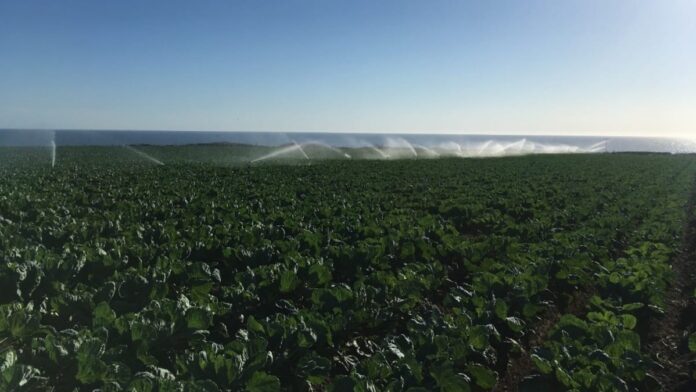
Competition for water resources caused by large-scale investments in agricultural land can have serious social and economic consequences. These are the findings of a study by the Politecnico di Milano in collaboration with the University of California, Berkeley; the University of Notre Dame, Colorado State University, the University of Delaware, and the Vrije Univeristeit in Amsterdam, published in Nature Communications.
The ongoing agrarian transformation towards large-scale commercial agriculture often pursues the goal of increasing agricultural production through the expansion of irrigation. In this process, translation large-scale land acquisition (LSLA) is playing a primary role.
The study by Politecnico di Milano analysed the water status of 160 acquisitions and the resulting emergence of water scarcity associated with the cultivation of the land involved. The results confirm that the lands of interest to investors are those with preferential access to surface water and groundwater resources. In addition, the research shows that such agricultural investments often exacerbate water scarcity through both the cultivation of crops that demand a lot of water and the expansion of irrigated crops. Of the 160 large-scale acquisitions analysed, 105 resulted in competition for water, often to the detriment of local users.
“Combining the growing demand for water with limited water resources is a key challenge for sustainable development,”comments Maria Cristina Rulli, Professor of Hydrology at Politecnico di Milano. “The use of water resources for agricultural production in large-scale land acquisitions can generate hydrological and social consequences for local users. To date, there have been only a few timid attempts to regulate, mainly on a voluntary basis, large-scale agricultural land acquisitions in the Global South and, unfortunately, recent progress in understanding the water dimension of these acquisitions has not yet been translated into a water governance perspective that takes into account any hydrological constraints, the need for water to ensure rural livelihoods, and environmental law”.
In many parts of the world, water rights are inseparable from land, and remain intrinsically linked to land rights, as pertaining to land overlying an aquifer or bordering a surface water body. As a result, water is often acquired through land ownership or long-term land leases and concessions.

| [donate]
| Help keep news FREE for our readersSupporting your local community newspaper/online news outlet is crucial now more than ever. If you believe in independent journalism,then consider making a valuable contribution by making a one-time or monthly donation. We operate in rural areas where providing unbiased news can be challenging. |



















